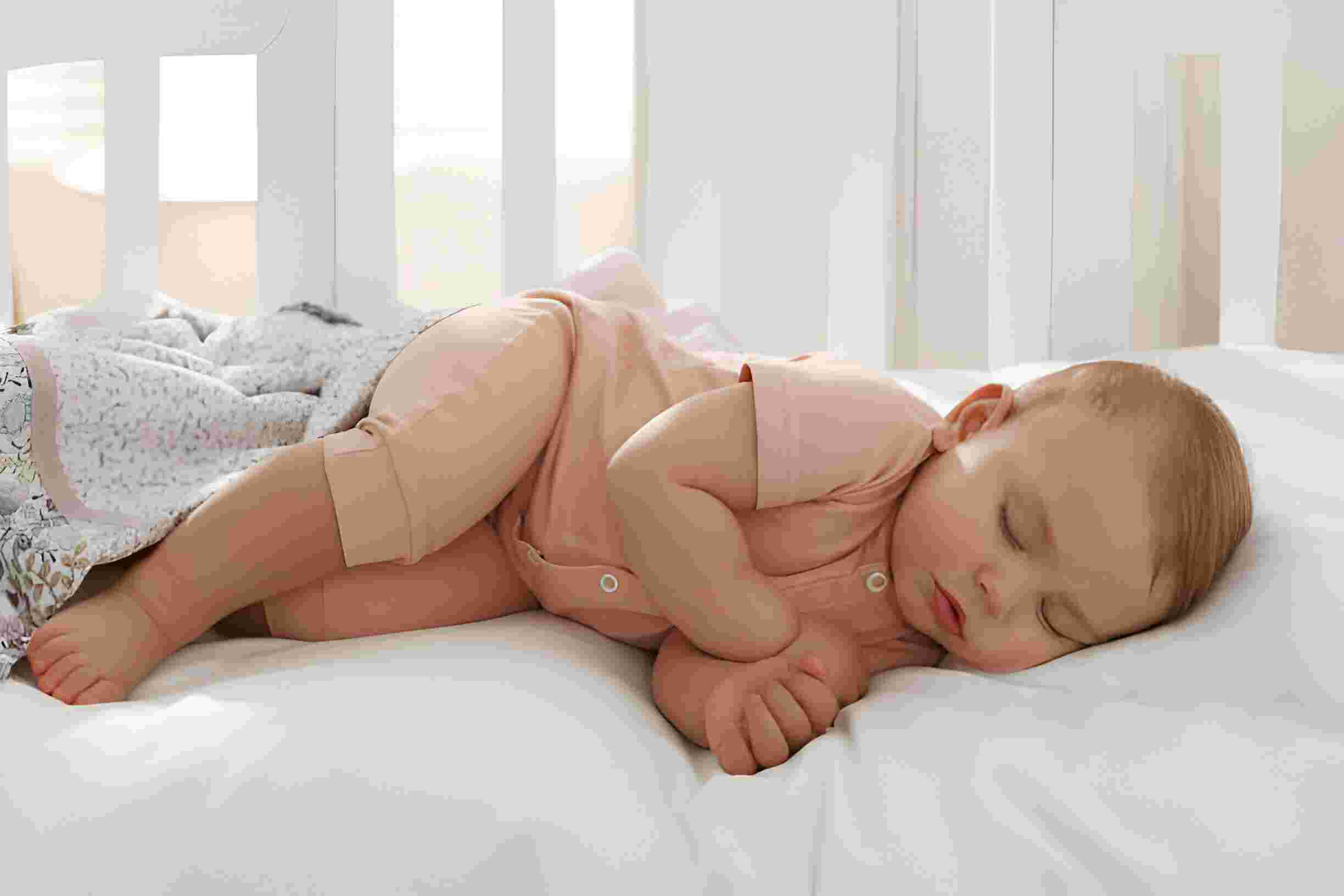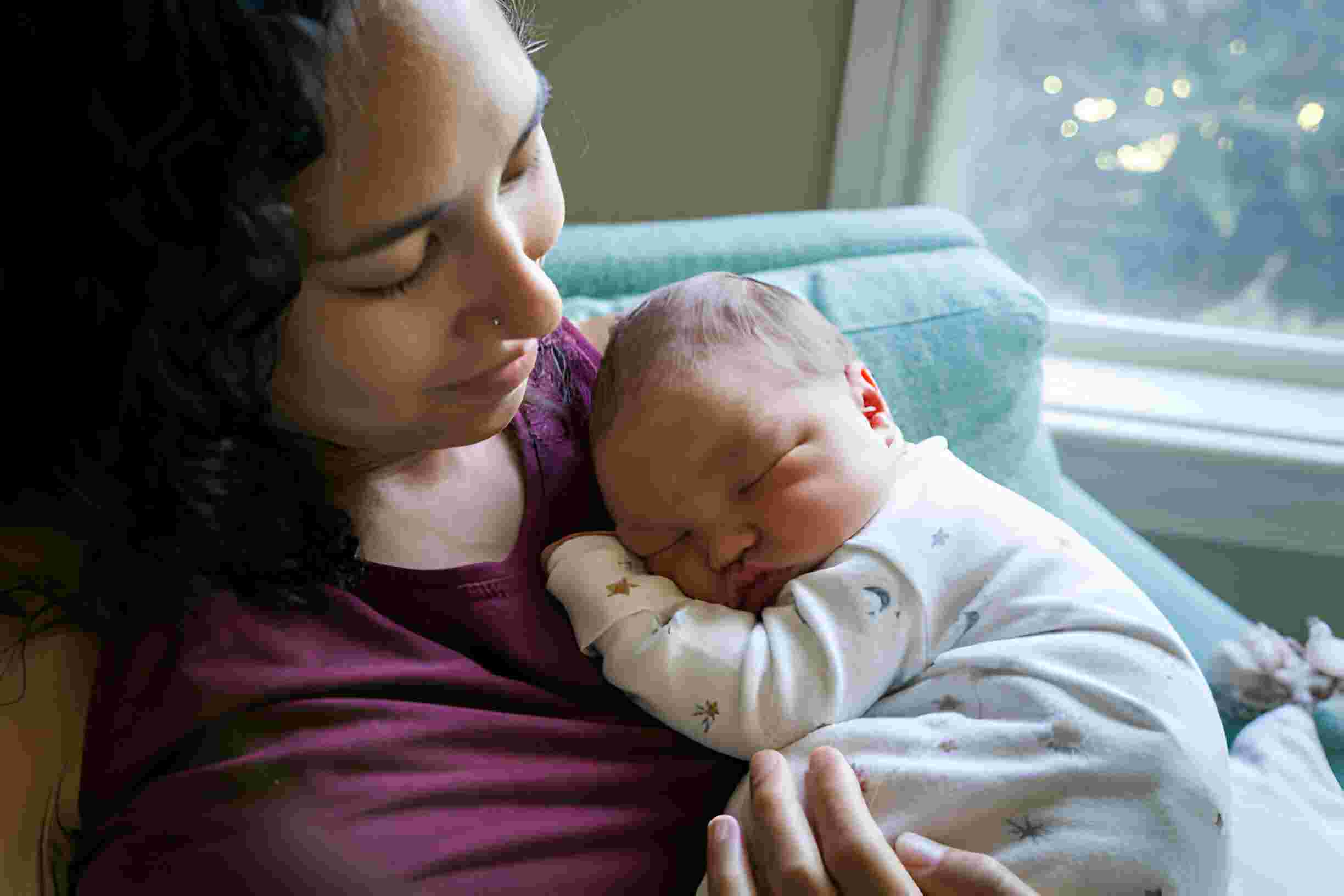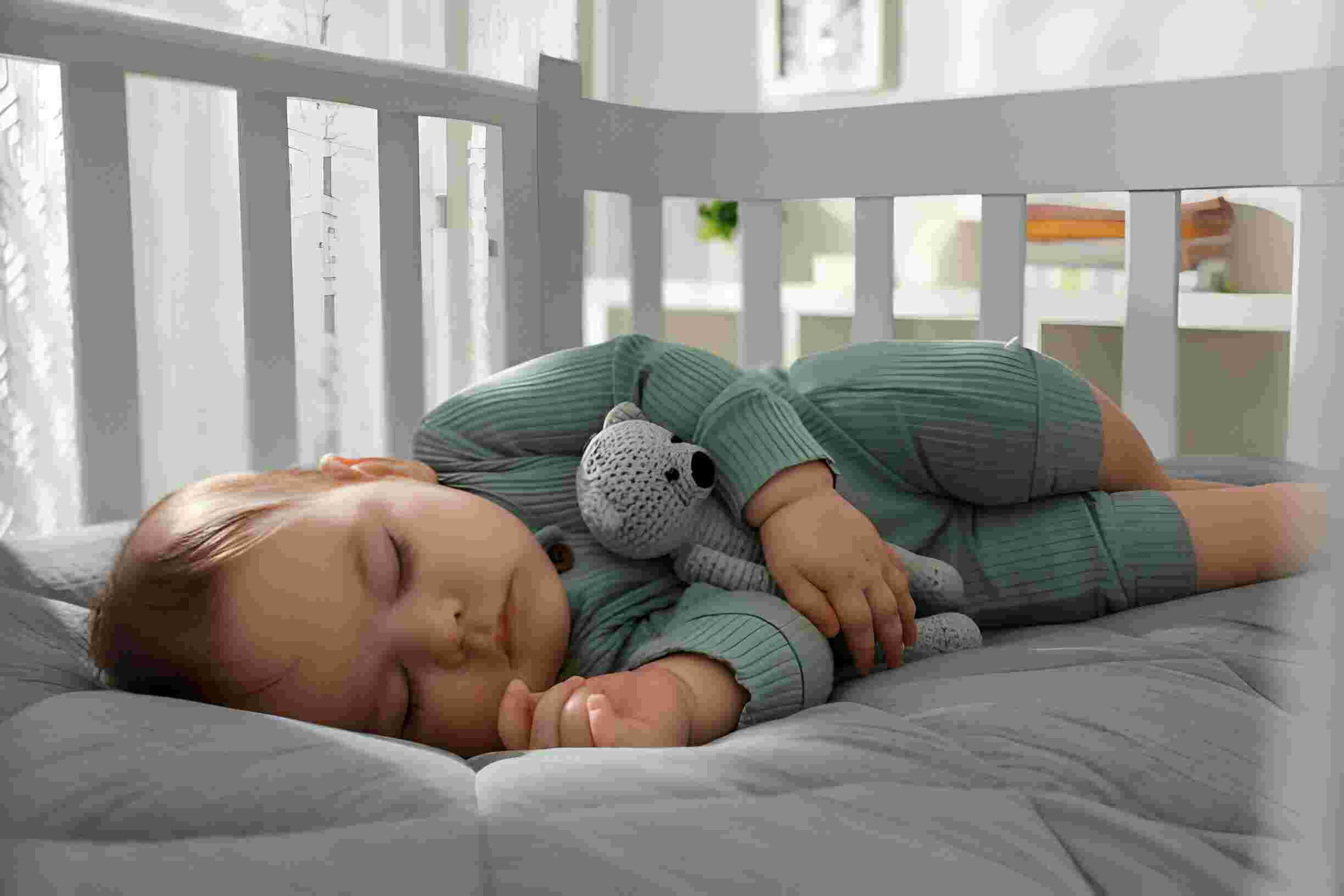So in today’s blog post, we’ll be looking at the question we have here, and which is how long should I let my baby sleep after vaccinations?
The health and welfare of our children come first for us as parents. Timely vaccinations to protect them from various illnesses are one of the most important parts of their care.
On the other hand, parents frequently wonder about the consequences of vaccinations, especially in relation to their baby’s sleep patterns.
In order to ensure your baby’s comfort and recovery following vaccinations, this article will address a commonly asked question: how long should I let my baby sleep after vaccinations?
Should I let baby sleep after vaccines?
Yes, you should allow a baby to sleep following vaccinations. Sometimes, minor side effects from vaccinations can occur, such as drowsiness, fussiness, or a slight fever.
Your baby will heal faster and feel less pain if you let them sleep and rest. Being sleepy means their body is doing an excellent job of fighting the virus, so it’s important to let them sleep.
Let’s find out the tips on how to help your baby sleep after vaccinations:
1. Comfort and cuddle:
Provide your baby with comfort and reassurance. Hold and cuddle them if they are fussy or irritable.
Don’t forget to read:
2. Create a calm environment:
Ensure the sleeping area is quiet, dimly lit, and free from distractions. This can help create a soothing atmosphere for your baby to sleep.
3. Follow your baby’s cues:
Observe your baby’s behavior and let them sleep when they show signs of tiredness or drowsiness.
Babies often need more sleep after vaccinations, so it’s important to allow them to rest as needed.
4. Monitor their temperature:
If your baby develops a fever after vaccination, it’s important to monitor their temperature.
Follow your pediatrician’s instructions for managing fever in babies.
5. Offer comfort measures:
If your baby is experiencing any discomfort at the injection site, you can use a cool compress or administer a pain reliever if recommended by your healthcare provider.
How long should I let my baby sleep after vaccinations?
The duration of sleep may vary from child to child, as some babies may experience mild discomfort or fatigue after vaccinations.
Your baby may be extra sleepy in the 48 hours following their shots and need to rest.
Keep in mind the following:
1. Follow your baby’s cues:
Pay attention to your baby’s behavior and signs of tiredness. Some babies may become more fussy or tired than usual after vaccinations, while others may not be affected as much. Allow your baby to sleep when they seem tired or show signs of needing rest.
2. Short naps:
It’s common for babies to take shorter naps after vaccinations. They may have trouble settling or may wake up more frequently. Try to create a calm and soothing environment to help them relax and sleep comfortably.
3. Extra comfort:
Provide extra comfort and reassurance to your baby during this time. Gentle cuddling, soothing sounds, using a cool, damp cloth on the injection site, or soft music may help them feel more secure and relaxed.
4. Feeding:
Ensure your baby stays well-hydrated and continues to nurse or take formula as usual. Hydration is essential for recovery.
5. Monitor for any adverse reactions:
While mild reactions are common after vaccinations, monitor your baby for any severe or persistent reactions. If you notice any concerning symptoms, such as high fever, difficulty breathing, or excessive irritability, contact your pediatrician immediately.
How long are babies tired after vaccinations?
After receiving vaccinations, babies may experience some tiredness or drowsiness. The duration and intensity of this tiredness can vary from child to child.
It is common for babies to feel more tired than usual for a day or two following their immunizations. This is because their bodies are mounting an immune response to the vaccines, which can temporarily affect their energy levels.
However, the tiredness experienced by babies after vaccinations is usually mild and short-lived. Most babies will return to their normal energy levels within a couple of days.
If your baby seems excessively tired or you have concerns about their well-being, consult with their healthcare provider for personalized advice.
How should a baby sleep after vaccinations?
After vaccinations, babies should sleep in a position that is safe and comfortable. Although sleeping on their backs is safest for babies, being in a side position or on their stomach has proven calming following a shot.
1. Position:
It is safest for babies to sleep on their backs, especially for infants under one year old. This reduces the risk of sudden infant death syndrome (SIDS). Although, it’s more comfortable to lie on their stomach or side.
2. Use a firm sleep surface:
Make sure the baby’s sleeping area, such as a crib or bassinet, has a firm mattress with a fitted sheet. Avoid using pillows, blankets, or soft bedding, as they can increase the risk of suffocation.
3. Keep the sleep environment comfortable:
Maintain a room temperature that is neither too hot nor too cold. Dress your baby in appropriate clothing for the temperature to ensure they stay comfortable during sleep. Choose a sleep environment that is quiet, dimly lit, and conducive to relaxation.
4. Monitor for side effects:
After vaccinations, some babies may experience mild side effects such as a low-grade fever, soreness or swelling at the injection site, or general discomfort. If you notice any severe or persistent symptoms, consult your pediatrician.
5. Follow your doctor’s advice:
Your healthcare provider will provide specific instructions regarding any post-vaccination care for your baby. Follow their recommendations and consult them if you have any questions.
6. Extra cuddles:
Some babies may be more irritable or fussy after vaccinations. Providing extra cuddles and soothing comfort can help them feel secure and calm.
7. Regular sleep routine:
Stick to your baby’s regular sleep routine as much as possible. This includes maintaining consistent nap times and bedtime routines, such as feeding, bathing, and reading a bedtime story. A familiar routine can help your baby feel more settled.
8. Monitor temperature:
If your baby has a low-grade fever after vaccinations, you may need to monitor their temperature during sleep. Follow the instructions given by your pediatrician on managing fever and administer any recommended medication as directed.
9. Observations:
During sleep and wakefulness, observe your baby for any signs of unusual behavior or discomfort. If you notice anything concerning, contact your healthcare provider for further guidance.
Should you wake a sleeping baby after vaccinations?
No, you should not wake a sleeping baby after vaccinations. It is important to let your baby rest and sleep after vaccinations, as sleep is important for their overall well-being and healing process. Interrupting their sleep may cause unnecessary stress and discomfort.
However, if your baby is due for a feeding or has a specific medical condition that requires regular waking, you should follow your pediatrician’s advice regarding waking them up.
Baby is not sleeping after vaccination
Some babies do experience changes in their sleep patterns after receiving vaccinations. Some may have temporary discomfort, irritability, or a mild fever, which can make it more difficult for them to fall asleep or stay asleep.
Few suggestions to help your baby through this period:
1. Comfort and soothe:
Provide extra comfort and soothing techniques to help your baby relax. This can include gentle rocking, singing lullabies, using a pacifier, or offering a favorite blanket or toy.
2. Check the temperature:
If your baby has a fever after the vaccinations, ensure their room is at a comfortable temperature. Dress them in light, breathable clothing and consider using a fan or adjusting the thermostat if needed.
3. Offer extra cuddles and skin-to-skin contact:
Physical contact with your baby can be comforting and reassuring. Hold your baby close or practice skin-to-skin contact, which can help regulate their body temperature, heart rate, and breathing, promoting a sense of security and relaxation.
4. Keep a consistent routine:
Maintaining a consistent bedtime routine can help signal to your baby that it’s time to sleep. Follow a sequence of activities such as a warm bath, gentle massage, quiet time, and reading a bedtime story to create a calm environment.
5. Monitor for other symptoms:
While it’s normal for babies to have mild reactions after vaccinations, it’s essential to monitor for any concerning symptoms. If your baby displays severe or persistent symptoms, such as high fever, excessive crying, or unusual behavior, contact your pediatrician for further guidance.
6. Offer pain relief:
Some babies may experience localized discomfort or soreness at the injection site. You can ask your pediatrician if it’s safe to use a pain reliever suitable for your baby’s age and weight.
7. Provide extra attention during the day:
If your baby is having difficulty sleeping at night, try providing additional attention and stimulation during the day to help them burn off energy and promote better sleep at night.
8. Offer comfort items:
If your baby has a favorite blanket, stuffed animal, or pacifier, make sure they have access to these comforting items.
9. Be patient:
Be patient with your baby and provide them with the extra comfort and care they need during this time.
10. Provide a soothing bath:
A warm bath before bedtime can help relax your baby. The warm water can soothe any discomfort and create a calming effect, making it easier for them to fall asleep.
11. Use a cool compress:
If your baby experiences localized tenderness or swelling at the site of the vaccination, you can try applying a cool compress to provide relief. Ensure that the compress is not too cold and that you use a cloth or towel as a barrier between the compress and your baby’s skin.
12. Try gentle motion:
Babies find comfort in gentle motion, such as rocking, swaying, or using a baby swing or vibrating chair. Experiment with different types of movement to see what works best for your baby.
13. Create a conducive sleep environment:
Ensure that the sleep environment is calm, quiet, and comfortable. Dim the lights, use white noise or soft music to create a soothing atmosphere, and adjust the room temperature to a comfortable level.
14. Feed your baby:
If your baby is due for a feeding, offer a feeding before bedtime. A full tummy can help promote better sleep.
15. Try infant pain relievers:
If your baby is experiencing pain or discomfort, you can consult with your pediatrician about using infant pain relievers that are safe for their age. Always follow the recommended dosage and consult a healthcare professional before giving any medication.
16. Offer extra feedings:
Babies may be more prone to wakefulness after vaccinations due to increased hunger or thirst. If your baby is awake and seems hungry, consider offering an extra feeding to help them feel satisfied.
17. Consult your pediatrician:
If your baby continues to have persistent sleep issues or if you have any concerns about their well-being, consult your pediatrician. They can provide further guidance based on your baby’s specific needs and offer any necessary medical advice.
In conclusion of today’s question of the day, how long should I let my baby sleep after vaccinations, you should let your baby sleep as long as they need after vaccinations. Sleep is an essential part of their recovery process, allowing their bodies to heal and build immunity. While there is no specific duration mentioned, monitoring your baby’s sleep patterns and ensuring they get enough rest is crucial for their overall well-being and comfort after receiving vaccinations.













